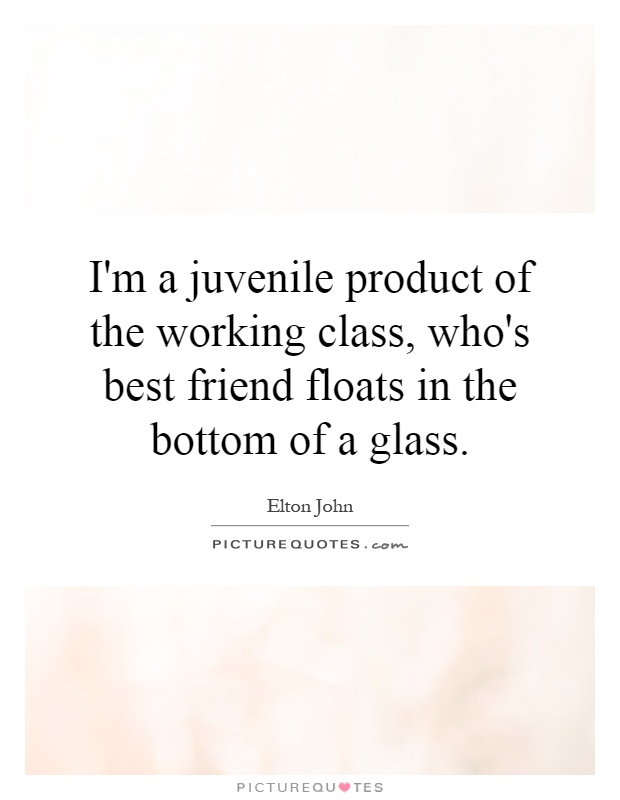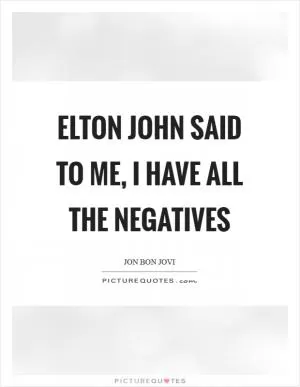I'm a juvenile product of the working class, who's best friend floats in the bottom of a glass

I'm a juvenile product of the working class, who's best friend floats in the bottom of a glass
"I'm a juvenile product of the working class, who's best friend floats in the bottom of a glass" is a poignant lyric from Elton John's song "Saturday Night's Alright for Fighting." This line captures the essence of a young person from a blue-collar background who finds solace and escape in alcohol.Elton John, born Reginald Kenneth Dwight, grew up in a working-class family in Pinner, Middlesex, England. His father was a flight lieutenant in the Royal Air Force, and his mother was a homemaker. Despite his humble beginnings, Elton John rose to fame as one of the most successful and influential musicians of all time.
In "Saturday Night's Alright for Fighting," Elton John sings about the thrill and excitement of going out and partying on a Saturday night. The protagonist of the song is a rebellious young person who comes from a working-class background and finds release from the pressures of everyday life in alcohol. The line "who's best friend floats in the bottom of a glass" speaks to the character's reliance on alcohol as a coping mechanism and a source of comfort.
Throughout his career, Elton John has been open about his struggles with addiction and substance abuse. In the 1970s, he battled with alcohol and drug addiction, which took a toll on his personal life and career. In his autobiography, "Me," Elton John reflects on his past struggles with addiction and how he was able to overcome them with the help of friends, family, and professional treatment.
Despite his struggles, Elton John has emerged as a survivor and a symbol of resilience. He has been sober for many years and continues to make music and perform for his fans around the world. Through his music and personal journey, Elton John has inspired countless people to confront their own demons and seek help when needed.












 Friendship Quotes
Friendship Quotes Love Quotes
Love Quotes Life Quotes
Life Quotes Funny Quotes
Funny Quotes Motivational Quotes
Motivational Quotes Inspirational Quotes
Inspirational Quotes